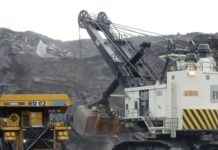
SIBANYE-Stillwater’s decision to cancel a share purchase agreement for the Santa Rita nickel and Serrote copper-gold mines in Brazil was based on a geotechnical event at Santa Rita. According to Sibanye-Stillwater in January 2022, the failure* of an open pit wall was a material adverse event (MAE).
This geotechnical event – a collapse as Sibanye-Stillwater described it – would halve Santa Rita’s mine life and so it pulled out of the arrangement — a development that drew the applause from analysts at the time.
But a judgment handed down by Mr Justice Butcher in the High Court of England and Wales on October 10 found that Sibanye-Stillwater’s decision was flawed largely because due process hadn’t been followed.
Neal Froneman, Sibanye-Stillwater CEO, hadn’t read the definition of an MAE in the share purchase agreement. “I had a good feeling that it was going to be satisfied,” he told the court, while giving evidence in September. While Froneman’s “good feeling” partly relied on feedback from his team at Sibanye-Stillwater, it was also without full board sanction. As such, Froneman who was the final decisionmaker on whether to cancel the deal.
In this regard, the judge found: “It is clearly not right to say that, at the time when the letter of termination was sent, there had been a unanimous, or even a majority, expression of support by the board for the course to be taken.”
At the time Sibanye-Stillwater announced its decision to invest in the mines, in October 2021, the company had already racked up R10bn in capital commitments (mainly to the Keliber and Rhyolite Ridge mines, the latter not yet committed). At the time, analysts questioned the spending, notwithstanding nearly R25bn in headline interim earnings that year.
The judge concluded, however, that the decision to pull the Santa Rita-Serrote deals was not “”reckless as to whether it was lawful”. Sibanye-Stillwater “believed” it was entitled to terminate the deal, he said.
“Though the decision was taken in an overly hurried manner, where relevant information was not adequately shared and by a process … it was nevertheless a decision which appeared to those concerned to be justified,” he said.
*In its judgement, the court said it was irrelevant in the end whether the word ‘failure’ or some term harsher, was used to describe the geotechnical event. His focus fell on the level of disruption it caused, deciding that it was more akin to a dislocation of ground rather than, say, a collapse.
A version of this article first appeared in the Financial Mail.










